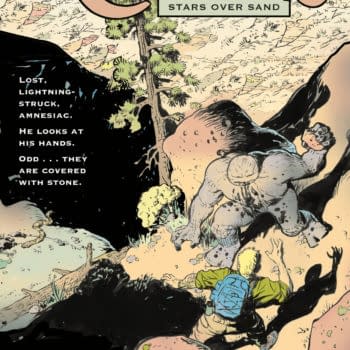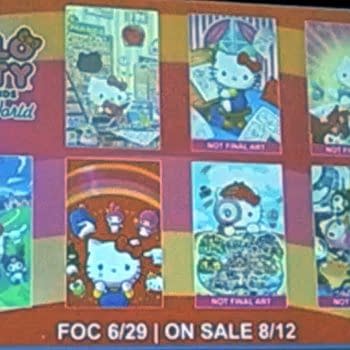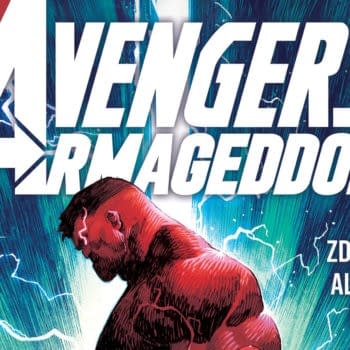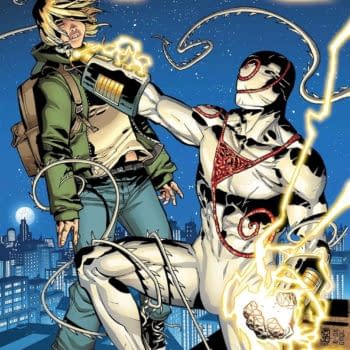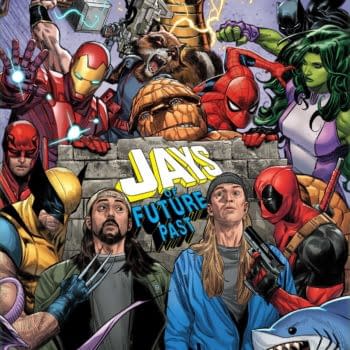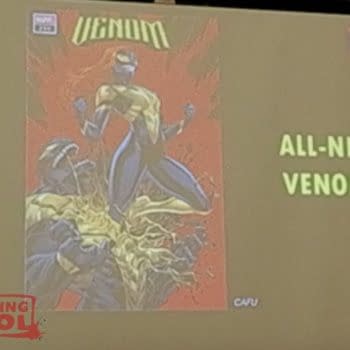Posted in: Comics | Tagged: Comics, stumptown
Stumptown Comics Fest: Heavy Ink

Tom Neely is the creator of The Wolf — a silent graphic novel inspired by the aesthetic of heavy metal — as well as the publisher of the controversial Henry and Glenn Forever — an anthology that sees Henry Rollins and Glenn Danzig living together in a domestic partnership. He was joined by Ed Luce, who also contributed to Henry and Glenn, and is the creator of Wuvable Oaf about a cat-loving metal singer; and Benjamin Marra, whose work includes Gangsta Rap Posse and Night Business — love letters to 1980s exploitation culture.
From their work, it's clear that music and its various subcultures has a huge influence on what all three do. Neely and Marra spoke about how their early experiences with music as a kid helped to define who they were — listening to KISS, The Misfits and Suicidal Tendencies led them into alternative crowds of creative people. Especially in art school, they saw a lot of overlap between themselves and music students, and other people in bands. For both them, that inspired them to stop making art that was "relevant" or "important" and instead create work that spoke to their own passions and experiences.

Neely's own work connects directly to his love of music to such an extent that he wrote and recorded an album to accompany one of his art shows, and he is currently putting together a soundtrack to The Wolf which will feature everything from Black Metal to banjo-driven folk music. While Marra has no such musical inclination, he still shares his passion through his comics and tries to extend the mythology of music he likes. Gangsta Rap Posse is so over-the-top that it mimics the self-aggrandizing aspect of that genre. Just like superheroes extend the real world into the realm of the fantastic, so too does gangsta rap exaggerate real-life crime into epic proportions.
Neely noted that what happened with gansta rap in the USA in the 90s was almost the same as what happened with black metal in Scandinavia — real life incidents became blown out of proportion, both by the artists and the media, and turned the genre into something taboo and dangerous. It all came down to good branding and self-promotion.

The notion of convergence again came up, with Neely and Luce noting that they're often better-recognised in music circles than in the world of comics. Neely's books continue to sell well in indie record stores, while Luce finds himself gaining recognition from his Ejaculoid records. Marra noted that stories like their make him realize just how small the world of comics can be, and that musicians who are at the same stage in their career as they are often tour the world, while cartoonists are attending the same regional comic shows. Not everyone reads, or even acknowledges comics, but everyone listens to music.








